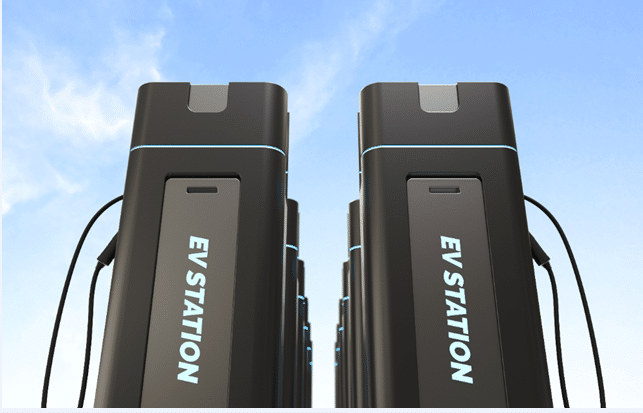Discover the differences between 48V and 51.2V golf cart batteries. Learn about their performance, lifespan, and maintenance in this inclusive guide.
What’s The Difference Between 48V And 51.2V Golf Cart Batteries: A Comparative Analysis
Are you an electric golf cart owner and wondering which battery is best for its power supply? Worry not because in this article, we dive deep into the comparison of the two of the most popular options available: the 48V and 51.2V.
As you may already know, a golf cart battery is an important component of this versatile vehicle, affecting everything from its performance to efficiency and maintenance. This is why it’s crucial to choose the right battery. Now due to the technology progress, it has replaced the traditional lead-acid power sources with lithium-ion ones.
So, let’s explore two high-in-demand golf card battery voltage types – 48V and 51.2V and the differences between them.
48V vs 51.2V Golf Cart Batteries – The Key Differences
Let’s break down their key differences along with some practical tips to help you find which one will better serve your purposes:
The Voltage*
Ok, this may seem pretty straightforward. One comes with a 48V carriage, while the other with 51.2V. Both send power to the golf cart’s motor, impacting its speed and torque.
However, although their difference may seem minimal, some may say even impactful-less, this 3.2 volts gap can make a noticeable difference in performance.
- 48V Batteries: A standard option for years, they are widely used in many golf carts. They are compatible with most existing systems while providing consistent power.
- 51.2V Batteries: On the contrary, the newer version of them is slightly higher in voltage, offering improved efficiency and power output. This seemingly small voltage increase can actually lead to better acceleration and longer range.
*Voltage is, in its essence, the “push” that drives electrical current through a circuit.
Category Winner: The 51.2
The Battery Chemistry: Lead-Acid vs. Lithium-Ion
Both of these two types of golf cart batteries – 48V and 51.2V, are available in lead-acid and lithium-ion configurations, although most modern 51.2V options are lithium-ion.
The key difference lies in the battery chemistry because this is what significantly affects weight, lifespan, and charging efficiency. Here is why:
- Lead-Acid Batteries: They are affordable all right, but quite heavy. Their lifespans tend to be shorter, and they provide lower energy efficiency. They also require regular maintenance, so what you might earn upfront, you compensate for later on. Lead-acid chemistry is frequently found in older 48V setups.
- Lithium-Ion Batteries: On the contrary, lithium-ion-based chemistry has conquered the 51.2V types, offering the lightweight, long-lasting, and maintenance-free pros it comes with. These batteries charge faster and deliver consistent power throughout their discharge cycle.
Category Winner: Lithium-ion 51.2V

The Performance and Range
The extra 3.2 volts in a 51.2V battery – especially the lithium-ion type, translates to noticeable performance improvements regarding:
- Acceleration and Speed: Although slightly higher, this voltage allows the motor to run more efficiently, resulting in better acceleration and higher top speeds.
- Range: Lithium-ion 51.2V batteries, in particular, let you travel farther on a single charge compared to a 48V system.
- Weight: Lithium-ion batteries are significantly lighter than lead-acid options. This means they don’t burden your golf cart with extra weight, thus improving its efficiency.
Category Winner: Lithium-ion 51.2V
The Charging Efficiency
As you probably have already realized by now, the 51.2V lithium-ion golf cart batteries win the race, referring to the charging efficiency as well.
They support faster charging, which means less waiting for you between uses. In addition, they are more eco-friendly since they are recyclable and cost-effective over time.
Category Winner: Lithium-ion 51.2V
The Cost and Compatibility
Now, as per their cost and compatibility, here are the facts:
- Cost: The 51.2V lithium-ion batteries are more expensive – initially – than 48V lead-acid batteries. However, in the long term, their ROI offsets their upfront cost. They save you money on maintenance, need for replacement, and charging efficiency.
- Compatibility: Since the 48V system counts for some time in the field, its compatibility is higher. But, if you are thinking of upgrading from such a system to a 51.2V one, you’ll need to check first the compatibility with your golf cart’s motor. To see if it can handle the higher voltage. If not, some modifications may be necessary.
Category Winner: Lithium-ion 51.2V
The Lifespan and Maintenance
Finally, the last two key differences between the 48V and the 51.2V golf cart batteries show up in the lifespan and maintenance categories.
Lithium-ion batteries typically last much longer than their lead-acid alternatives. And their difference is significant; While a lead-acid battery might last 3-5 years with regular maintenance, a lithium-ion battery can last 8-10 years or more with minimal upkeep.
Likewise, as per their maintenance:
- The 48V Lead-Acid batteries need frequent water refills, cleaning, and careful charging to avoid sulfation signs.
- The 51.2V Lithium-Ion batteries, on the contrary, are more durable, don’t mind improper charging practices, and free you from maintenance.
Category Winner: Lithium-ion 51.2V
As you can see, while both types have their pros and cons, the scales weigh more on the side of lithium-ion 51.2V golf cart batteries. Whatever the case, the final choice is yours, depending always on your needs and budget.

48V or 51.2V Golf Cart Battery Should You Choose?
So, which one should you choose? Let’s wrap up the key differences between a 48V and a 51.2V golf cart battery to help you choose better:
- 48V Batteries: Ideal for you if you’re on a tight budget or with an existing system that can’t welcome higher voltages. Opting for the lead-acid options will suit your needs for short distances and casual use.
- 51.2V Batteries: Perfect for you if your needs are more demanding. In case you want performance, range, and long-term savings, go for these pieces. The lithium-ion versions of them make the best ally for frequent use and heavier loads.
Frequently Asked Questions
Can I replace my 48V battery with a 51.2V battery?
Yes, it’s possible. But keep in mind that you may need to modify your golf cart’s motor. Before replacement, better consult with a mechanic.
Are 51.2V batteries worth the extra cost?
Yes, but only if you really need them. Like if you use your golf cart frequently, transfer weight or seek extended range. Then, yes, go for them because the long-term benefits of 51.2V lithium-ion batteries surpass the higher initial investment.
How long do these batteries last?
It depends on the volts you choose each time. The 48V lead-acid types can last up to 3-5 years, while the 51.2V lithium-ion can make it up to 8-10 years or more without much maintenance fuss.
Are lithium-ion batteries safe?
Yes, totally. The modern models come with advanced safety features like temperature monitoring and overcharge protection, making them completely safe for regular use.
The Bottom Line
There you have it. The key differences between a 48V and a 51.2V golf cart battery presented to you in detail. So, you can choose which one is more suitable for your needs and budget.
Although they may seem similar at first glance, you now know well that choosing one over the other will impact your golf cart’s efficiency, range, and overall performance distinctly. If you like to know how much area you need to establish a golf course, you can read our article- how many acres need for build a golf course. You will get more in depth idea in this article about golf course design requirements and factors influencing the size of golf course.
You can also read our How Long Does a 100Ah Battery Last in a Golf Cart blog. Here, you will learn about 100 ah battery how work for a golf cart.
If you seek a reliable and cost-effective performance, opt for the 48V option. Instead, if you swear on advanced results, durability, and long-term savings, then the 51.2V option is your go-to. So, ready to charge and hop on your golf cart?





Pingback: How Long Does a 100Ah Battery Last in a Golf Cart?